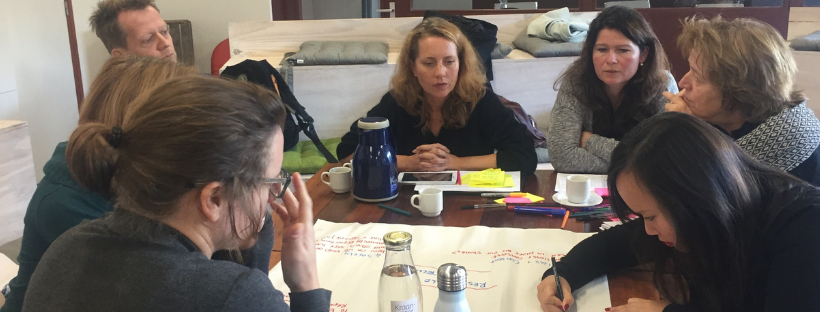COMMUNITY REPORTING AS A TOOL FOR INSIGHT

This is our second blog in a series about how Community Reporting has been used as a tool for co-creation in the CoSIE project. In this blog post, we wanted to share with you some of our learnings from applying Community Reporting as a tool for insight gathering, and explore some of our successes and challenges during this process…
In the CoSIE project, Community Reporting as an insight tool has been applied to collate and analyse stories about topics pertinent to the co-creation processes (i.e. to better understand the problem being tackled through the co-creation process). Some of the key strengths in using Community Reporting in this way have been:
- It gathers richer qualitative data than other more traditional research approaches do and helps to better understand ‘wicked’ or complex problems.
- It can help services to better engage with groups who would otherwise not usually have their voices heard – storytelling as a medium and our peer-to-peer approach is generally seen as being accessible to most people.
- It can help to address power imbalances between services and the people who access them by providing citizens with a chance to set the agenda.
- It provides a method for working with stories so that experiential knowledge can be gleaned from them and used as an alternative form of data.
Speaking about their experience of working with Community Reporting, the pilot in the Netherlands stated that “It’s not rocket science. It’s a basic thing that, as a civil servant, we tend to have an agenda – a well-meaning agenda but an agenda nonetheless. [Community Reporting] took us away from our agenda and allowed people to make their own.” In doing so, they got a richer understanding of the issues behind why people were unemployed in their municipality than they did from statistics. This reframed how they thought about the problem, and thus influenced the interventions that the pilot is currently testing out.
In terms of some of the challenges we have encountered in using Community Reporting in the project, we found that:
- It can take more time and resource to apply than other simpler data collation techniques (i.e. surveys)
- It can be difficult for some groups to engage with due to the digital technologies involved and the barriers they present
- It is an innovative tool for data gathering and sometimes not recognised by traditional ‘powers’
Speaking about one of these barriers, the Polish pilot explains how the older people they were working with “don’t get on well with the technology… it’s really hard for them“. Despite this, what they did connect with, was the idea of belonging to a social change movement and they have used this identity to spear-head change in their area.
In the next blog post in this series, we will explore how Community Reporting has been applied as tool for dialogue in the CoSIE project, and if you want to read the introductory blog in this series, you can do so here.